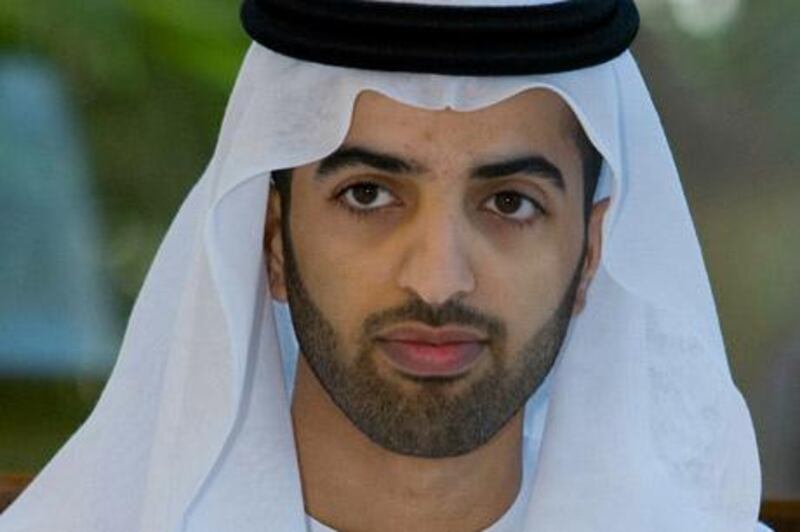RAS AL KHAIMAH // The young sheikh has the Qawasim profile but the soft, gentle eyes and long lashes of his mother, the businesswoman Sheikha Hana bint Juma al Majid.
He wears a white kandora with plain sandals, meaning there is little to mark him out from others in Ras al Khaimah.
But only a few years out of his teens, Sheikh Mohammed bin Saud Al Qasimi now carries the responsibility of his new role as the emirate's Crown Prince.
Sheikh Mohammed received the title last week after a 40-day mourning period for his grandfather, Sheikh Saqr bin Mohammed, who ruled the emirate for 62 years.
He sees his role as a listener, a guardian of traditions and, at the same time, a man to help to take RAK into the future.
"This is just a continuation of responsibilities that I have grown up with," said Sheikh Mohammed, 23, in the palace where he has greeted hundreds in the past week.
"Anything that is good for the people of this emirate, I will try to do and at the same time take into consideration the different views and thoughts people share. I want to do what is in the long term interest, not the short term."
All week, convoys of SUVs with tinted windows have passed through the high gates to his father's dune-top palace and its marble halls, fine Persian carpets and oil paintings, with sweeping views of the sea and desert.
Young bureaucrats and grizzled old tribesmen have come in hordes from the mountains and the desert. They - or their fathers, or grandfathers - pledged their allegiance to his grandfather in the 1940s and now they are showing their commitment to the new generation.
Most know Sheikh Mohammed already. "My key values are based on the values of this emirate and the values of the UAE," Sheikh Mohammed said. "You'll not find them written in any book. They are in the people."
Sheikh Mohammed, the oldest of six children, has shadowed his father Sheikh Saud bin Saqr, the new Ruler of RAK, for the past year since his return from the University of California, Los Angeles, where he graduated in political science with a focus on international relations.
He stands firmly beside his father, who took over the emirate's day-to-day affairs when he was named Crown Prince in 2003. Sheikh Saud has focused on economic development and diversification, which earned the emirate an A credit rating by Fitch in January 2008 and a GDP growth of 50 per cent in his first four years as Crown Prince.
Sheikh Mohammed is driven by his grandfather's values of accessibility and responsibility to the people. Much of his day-to-day life revolves around the ruler's court, where he listens to their problems. It was a habit that earned his grandfather the support of RAK's many tribes and united the emirate.
As Crown Prince, he will take a figurehead role, representing his family at opening ceremonies and visiting villages and government departments across the emirate.
His main role will be to meet people at the royal courts, where his grandfather also held an open majlis, or meeting with the public.
At these sessions, he will counsel residents and citizens and help them with their problems. He will also join his father in meeting diplomats, heads of state, scholars, military personnel and others. "Mostly it's nothing specific. I meet with all groups of society and with locals especially and see what their day-to-day issues are."
In a growing emirate, such meetings are a crucial means of staying connected to the public.
His initiatives include the Mohammed bin Saud Housing Rehabilitation Programme, which has provided funding to rebuild about 1,000 homes in villages and industrial areas in the last 10 years.
Sheikh Mohammed is humble about his responsibilities. He sees his role as "care taking", a continuation along the path of the founding fathers.
The sheikh grew up on the plains of Burairat in the shadow of the Hajjar mountains before his family moved to the Al Dhait palace about 10 years ago. He returns regularly to the mountain area of Jebel Jais for camping and hiking in the summer.
In the winter, he can be found in the red dunes of the southern desert with his falcons, a hobby since he was 12. He has a special attachment to a falcon that he has kept for seven years and which now lives in comfortable retirement.
Sheikh Mohammed says: "Of course, I would like to see a modern place and a developed place. But also, at the end of the day, the traditions we have here are unique for this region and that is the human touch that we have here."






